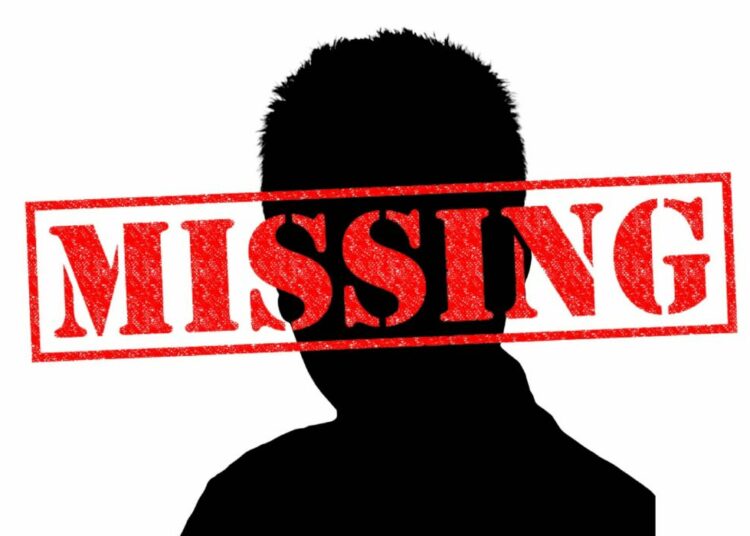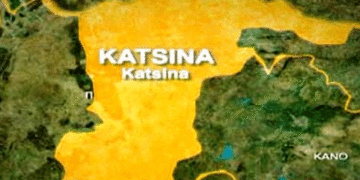The statistics are staggering and heartbreaking in equal measure: 23,659 Nigerians remain missing, leaving 13,595 families trapped in a nightmare of uncertainty. Behind these numbers lies a profound moral crisis that demands immediate attention from authorities at all levels.
When the International Committee of the Red Cross released these figures during the International Day of the Disappeared, they revealed not just data points, but the faces of mothers sleeplessly wondering if their children are alive, fathers searching empty streets, and siblings clinging to fading hope.
The human dimension of this crisis cannot be overstated. Sixty-eight percent of those desperately searching for missing loved ones are women, often left to navigate complex bureaucratic systems while shouldering the economic burden of single-handedly supporting their families.
More devastating still is the revelation that 59 percent of the missing were minors when they disappeared—children whose futures were stolen in an instant, leaving families shattered and communities scarred.
Yobe State alone accounts for 2,500 of these cases, with Gujba Local Government Area bearing the heaviest burden. This concentration points to systemic failures in conflict-affected regions where the state’s primary duty—protecting its citizens—has been abdicated.
The root causes of these disappearances paint a disturbing picture of Nigeria’s security challenges. Armed conflicts, particularly the insurgency in the Northeast, have created conditions where human beings simply vanish without trace.
Natural disasters compound the problem, while unsafe migration routes—both internal and external—claim lives that families may never recover or properly mourn. Each missing person represents a failure of the state to provide basic security and protection.
What makes this crisis particularly cruel is the limbo in which affected families exist. Unlike death, which provides closure and allows for proper grieving, disappearance creates an endless torment of not knowing. Families cannot move forward, cannot remarry, cannot inherit property, cannot even begin the process of healing because they remain suspended between hope and despair.
This psychological torture extends beyond immediate family members to entire communities living in fear that they too might lose loved ones to the void.
The ICRC’s work reveals families struggling not just with emotional trauma but with practical challenges of survival, legal complications around property rights, and social stigma that compounds their suffering.
The government’s response to this crisis has been woefully inadequate. While security agencies issue periodic statements about rescue operations and successful interventions, the rising numbers suggest that prevention and early intervention mechanisms are failing catastrophically.
There appears to be no coordinated national strategy for addressing missing persons cases, no dedicated resources for family support, and insufficient cooperation between federal and state authorities.
The legal framework surrounding missing persons in Nigeria remains poorly developed. Families often struggle to report cases effectively, face bureaucratic hurdles in obtaining official documentation of disappearances, and encounter indifferent attitudes from officials who should be providing support.
The absence of a comprehensive missing persons database means cases are not properly tracked, patterns are not identified, and resources are not allocated efficiently.
International experience shows that missing persons crises require multi-faceted responses. Countries emerging from conflict have established truth and reconciliation commissions, created missing persons institutes, and developed comprehensive databases linking families with information about their loved ones.
They have also provided economic support for affected families and established memorial sites to honor those who vanished. Nigeria has implemented none of these measures systematically.
The ICRC’s interventions provide a model for what comprehensive support should look like. Their work in reuniting seven separated children with families, collecting 451 new cases while closing 515, and providing mental health support demonstrates that progress is possible when organisations commit resources and expertise to the problem.
However, humanitarian organisations cannot shoulder this burden alone—it requires sustained government leadership and investment.
What Nigeria needs now is a National Missing Persons Commission with powers to investigate cases, coordinate search efforts, maintain comprehensive databases, and provide family support services. This body should have representation from security agencies, civil society organisations, religious leaders, and affected communities. It must be adequately funded and empowered to compel cooperation from relevant government agencies.
The National Assembly must pass comprehensive legislation establishing the rights of missing persons’ families, creating legal frameworks for property inheritance and remarriage, and mandating regular reporting on government efforts to locate missing persons.
This legislation should include provisions for victim compensation and community support programs.
State governments, particularly in conflict-affected regions, must establish dedicated missing persons units within their security architectures.
These units should maintain close relationships with communities, traditional rulers, and religious organisations who often possess crucial information about disappearances.
They must also work closely with humanitarian organisations like the ICRC and the Nigerian Red Cross Society.
The broader society must confront its tendency to forget these families once media attention fades. As the ICRC rightly notes, time does not heal the wounds of uncertainty—only acknowledgment, answers, and respect can begin that process. Communities must resist the temptation to stigmatise affected families and instead provide the solidarity and support they desperately need.





